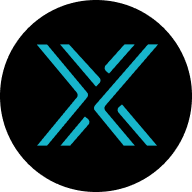Injective is a blockchain built for finance, providing an open, interoperable layer-one blockchain that powers next-generation DeFi applications, including decentralized spot and derivatives exchanges, AMMs, lending protocols, asset management protocols, and more. Founded in 2018 by Eric Chen and Albert Chon, Injective Labs is a research and development company that serves as one of the contributors to Injective. The mission of Injective is to create a truly free and inclusive financial system through decentralization, and to be the best blockchain built for finance. Injective is the only blockchain where developers can find robust out-of-the-box modules such as a completely decentralized order book that can be utilized to build a diverse array of sophisticated applications.
How does Injective work
Injective uniquely provides developers with powerful plug-and-play modules for creating unmatched dApps. These modules include a decentralized order book and derivatives trading module, options module, oracle module, and more to make it easy for any developer to quickly launch DeFi applications. Injective is built using the Cosmos SDK and is able to attain instant transaction finality using the Tendermint proof-of-stake consensus framework. In addition, Injective can facilitate fast cross-chain transactions across the largest layer one networks such as Ethereum, Solana, Polkadot and IBC-enabled blockchains.
Injective price and tokenomics
The native utility and governance token of Injective is INJ, which is used to secure the Injective L1 blockchain using a proof-of-stake (PoS) mechanism and powers Injective and its rapidly growing ecosystem. The INJ token has a maximum supply of 100 million tokens. The other key details of Injective’s tokenomics are:
- Developer Incentives: 40% of fees generated by users on dApps built on Injective go towards incentivizing new developers building on Injective.
- Protocol Fee Value Accrual: 60% and even more of all fees generated from dApps enter an on-chain buy-back-and-burn events.
- Tendermint-based Proof-of-Stake (PoS) Security: INJ is used to secure Injective blockchain using a PoS mechanim. Validators and delegators can both participate in staking.
- Governance: The INJ token governs every single component of Injective, with all proposal passing through a DAO governance vote.
About the founder
Injective Labs was co-founded by Eric Chen and Albert Chon in 2018. Eric Chen is the CEO of Injective Labs. His passion for crypto and blockchain started with mining Ethereum and participating in cryptographic research in college while studying finance and computer science. After working at a major crypto hedge fund, he decided to drop out of college and founded Injective Labs together with Albert Chon (CTO).
Injective highlights
Injective has achieved several significant milestones since its inception. In August 2022, Injective raised US$40 million to help expand financial applications on its L1 blockchain. In January 2023, Injective launched $150 million Injective Venture Group to support promising decentralized applications (dApps) built on Injective. In November 2023, Injective celebrated its second year of mainnet and reached over 314 million transactions, saw more than 44 million INJ tokens staked and 5.7 million INJ tokens burned through the weekly burn auctions.
Frequently Asked Questions about Injective (INJ)
- What is Injective (INJ)?
Injective is a blockchain built for finance, providing an open, interoperable layer-one blockchain that powers next-generation DeFi applications.
- What are the key features of Injective's blockchain technology?
Key features include premier plug-and-play Web3 modules, dynamic smart contracts, unprecedented interoperability, and highly secured Tendermint Consensus Mechanism.
- What is the INJ token used for?
The INJ token is used to secure the Injective L1 blockchain using a proof-of-stake (PoS) mechanism. It's also used for governance, protocol fee value capture, developer incentives, and Tendermin-based PoS security.





































